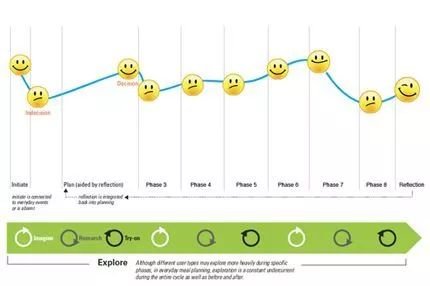AI Will Be Used to Treat Mental Illness? 当AI能够读懂人的内心情感时,你怕了吗?
神通广大的人工智能技术正在被应用到我们生活的方方面面。这不,科学家们正在尝试利用AI技术来治疗抑郁症——这一严重威胁我们健康的疾病。快来跟随小译一起来看看最新的研究成果吧~
Researchers funded by the US military are developing appliances to record neural activity and automatically stimulate the brain to treat mental illness.
获得美国军方资助的研究人员正在研发能记录神经活动、自动刺激大脑以治疗精神疾病的设备。

Brain implants that deliver electrical pulses tuned to a person's feelings and behaviour are being tested in people for the first time. Two teams funded by the US military's research arm, the Defense Advanced Research Projects Agency (DARPA), have begun preliminary trials of ‘closed-loop’ brain implants that use algorithms to detect patterns associated with mood disorders. These devices can shock the brain back to a healthy state without input from a physician.
根据人的感受和行为发出电脉冲的大脑植入物首次进行人体试验。由美国军方研究机构——美国国防部高级研究计划局(DARPA)资助的两个研究小组已经开始“闭环”大脑植入物的初步试验,这些植入物能利用算法检测到与心境障碍有关的图案,且可以在没有医生操作的情况下,通过电脉冲使大脑回到健康状态。
The work, presented last week at the Society for Neuroscience (SfN) meeting in Washington DC, could eventually provide a way to treat severe mental illnesses that resist current therapies. It also raises thorny ethical concerns, not least because the technique could give researchers a degree of access to a person's inner feelings in real time.
上周,“闭环”大脑植入物在华盛顿举行的神经系统科学学会年会(SfN)亮相,有望治愈那些目前疗法无法治愈的严重心理疾病。不过这也引起了尖锐的伦理问题,因为研究人员通过该技术能实时了解到一个人内心情感。

The approach — using a brain implant to deliver electric pulses that alter neural activity — is known as deep-brain stimulation. It is used to treat movement disorders such as Parkinson's disease, but has been less successful when tested against mood disorders. Early evidence suggested that constant stimulation of certain brain regions could ease chronic depression, but a major study involving 90 people with depression found no improvement after a year of treatment.
深脑刺激是通过大脑植入物发出电脉冲来改变神经活动。它被用来治疗帕金森等运动障碍疾病,但在治疗心境障碍时,测试却不太成功。早期的证据表明,不断刺激特定的大脑区域可以缓解慢性抑郁症,但一项以90名抑郁症患者为研究对象的重要研究发现,在历时一年的治疗后,患者情况并未得到改善。

The scientists behind the DARPA-funded projects say that their work might succeed, because they have designed their brain implants specifically to treat mental illness — and to switch on only when needed. “We've learned a lot about the limitations of our current technology,” says Edward Chang, a neuroscientist at the University of California, San Francisco (UCSF), who is leading one of the projects.
DARPA资助项目的科学家称,研究可能会成功,因为他们已经设计了专门用于治疗精神疾病的大脑植入物,并且只在需要的时候开启。加州大学旧金山分校(UCSF)的神经科学家爱德华·张是其中一个项目的负责人,他说:“我们已经了解到当前技术存在的局限。”
DARPA is supporting Chang's group and another at Massachusetts General Hospital (MGH) in Boston, with the eventual goal of treating soldiers and veterans who have depression and post-traumatic stress disorder. Each team hopes to create a system of implanted electrodes to track activity across the brain as they stimulate the organ.
DARPA正在资助张的团队和波士顿马萨诸塞州综合医院(MGH)的一个团队,最终目标是治愈患有抑郁症和创伤后应激障碍的士兵和退伍军人。两个小组都希望创建一个植入电极系统,当他们刺激器官时,该系统能跟踪大脑活动。
Mood map
心境图

At the SfN meeting, electrical engineer Omid Sani of the University of Southern California in Los Angeles — who is working with Chang's team — showed the first map of how mood is encoded in the brain over time. He and his colleagues worked with six people with epilepsy who had implanted electrodes, tracking their brain activity and moods in detail over the course of one to three weeks. By comparing the two types of information, the researchers could create an algorithm to ‘decode’ that person's changing moods from their brain activity. Some broad patterns emerged, particularly in brain areas that have previously been associated with mood.
在SfN会议上,洛杉矶南加州大学的电子工程师奥米德·萨尼(正与张的团队合作)展示了第一张随着时间推移变化的大脑编码情绪图。他和他的同事们为6个癫痫病患者植入了电极,在第一到第三周的时间里详细地跟踪他们的大脑活动和情绪。研究人员通过比较这两种类型的信息,可以创建一个算法来“解码”人大脑活动中的变化情绪。尤其是在以前与情绪有关的大脑区域出现了明显的图案。
Personalized treatment
个性化治疗

Wayne Goodman, a psychiatrist at Baylor College of Medicine in Houston, Texas, hopes that closed-loop stimulation will prove a better long-term treatment for mood disorders than previous attempts at deep-brain stimulation — partly because the latest generation of algorithms is more personalized and based on physiological signals, rather than a doctor's judgement.
韦恩·古德曼是德克萨斯休斯顿贝勒医学院的精神病医师,他希望闭环刺激比深脑刺激在治疗长期心境障碍时会有更好的疗效,部分原因是最新一代的算法更加个性化,是基于患者的生理参数,而非医生的判断。

Still, Chang says, the stimulation technologies that his team and others are developing are only a first step towards better treatment for mood disorders. He predicts that data from trials of brain implants could help researchers to develop non-invasive therapies for mental illnesses that stimulate the brain through the skull. “The exciting thing about these technologies,” he says, “is that for the first time we're going to have a window on the brain where we know what's happening in the brain when someone relapses.”
张说他的团队和别的团队正研究的刺激技术仅仅是治疗心境障碍的第一步。他预测通过大脑植入物实验收集的数据能够帮助研究人员设计出非侵入性疗法,以治疗通过颅骨刺激大脑的精神疾病。“这些技术令人激动的地方在于,”他说,“当患者旧疾复发时,我们将第一次知道他们大脑的活动情况。”
It is believed that AI technology can be successfully used in the treatment of depression in the near future.
相信在不久的将来AI技术能够成功地用于治疗抑郁症。